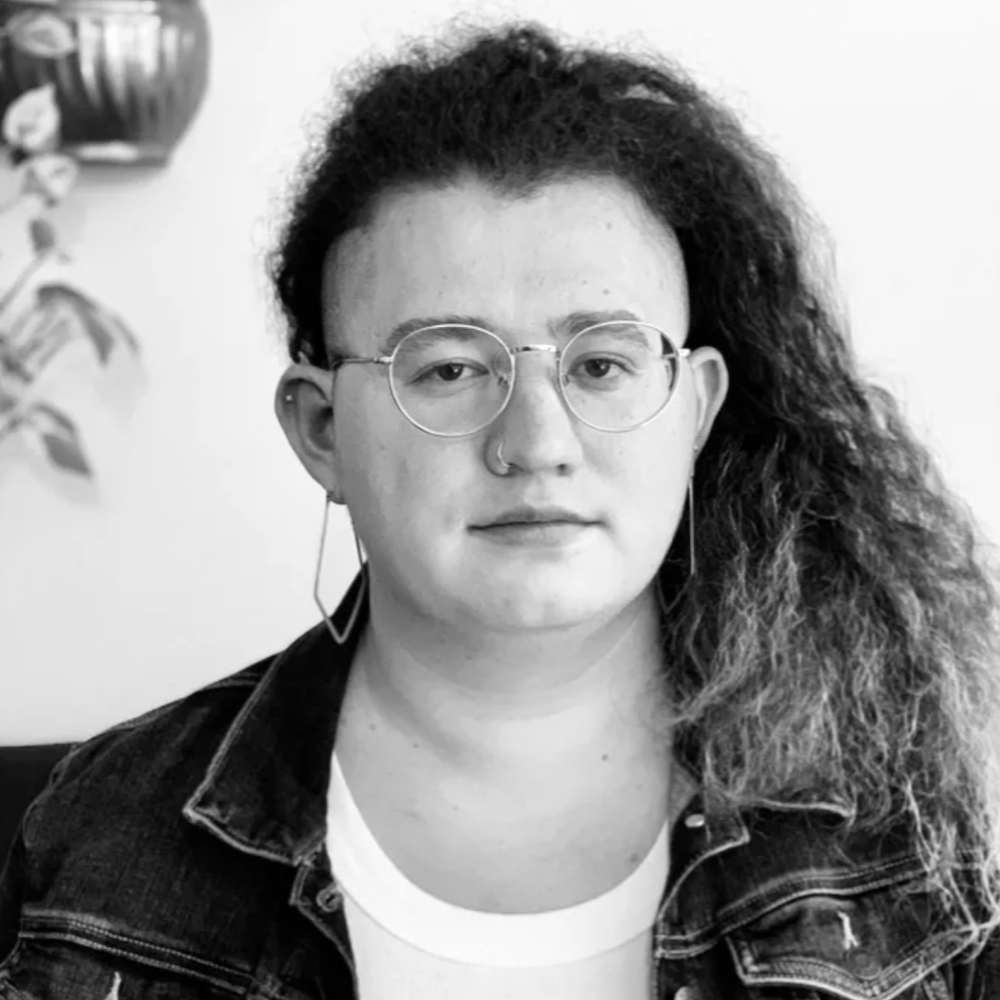Andrea Long Chu. Photo: Juliet Kleber Bookforum contributor Andrea Long Chu is joining New York magazine as a book critic, starting on November 15. “Each of her subjects is a portal into something broader,” said New York editor in chief David Haskell, “and each of her reviews you end up mulling hours after you put them down.” For The Baffler, Jack Hanson writes about Ghosts, Edith Wharton’s 1937 collection of “tales of the uncanny,” newly reissued by New York Review Books: “Wharton was in all aspects of her work and life preoccupied by the domestic . . . while
Charlie Warzel In his Galaxy Brain newsletter, tech reporter Charlie Warzel wonders what happens now that the Facebook Papers—a vast trove of documents released by an internal source—have been made public. Warzel writes that the leak proves many of the damning things reporters have been saying about Facebook for years, and yet the next steps are still uncertain: “I don’t know what comes next but I’m concerned. I’m concerned that Facebook is too big. I’m concerned that people might tuning out due to over-saturation. I’m concerned that the ‘fixes’ that could come from this momentum are going to be
Sarah M. Broom. Photo: Hal Williamson Hogarth Books has bought three books by Sarah M. Broom, whose 2019 debut, The Yellow House, won the National Book Award for Nonfiction and the NBCC John Leonard Prize for Best First Book. The publisher says that the three books, which will be connected thematically, dwell on “what it means to be a Black woman wanderer, mount an architectural survey of teeth and the infrastructure of the body, and finally, in returning home, will explore New Orleans through its history of Black homeownership.” Maud Newton’s book Ancestor Trouble, which was sold to Random
Elizabeth Hardwick For the Los Angeles Review of Books, Zachary Fine considers a forthcoming biography of Elizabeth Hardwick, her reputation as a stylist, and her popularity today. Cathy Curtis’s A Splendid Intelligence is one of a spate of books by or about Hardwick published in recent years; it seems, Fine writes, we are in “the prolonged season of Hardwick.” Fine also points out that some critics working today seem to write like her: “What better way to sneer at mass-market fiction and the flat Globish prose of ‘world literature,’ say, than to insist on writing like Hardwick: stunningly, unsaleably,
Summer Brennan At Gawker, writer and former Believer intern Nicholas Russelll reflects on the magazine’s nearly twenty-year history and questions the official narrative about why the publication is closing: “While the official record supplied by BMI and UNLV paints a picture of an unfortunate, but ultimately pragmatic decision to ‘focus on its core mission,’ the reality is less noble. Callous mismanagement and a lack of care overshadowed the good work being done at the magazine.” The closure comes a few months after Joshua Wolf Shenk, the editor in chief of The Believer, resigned after exposing himself during a Zoom
Henry Louis Gates Jr. Photo: Stephanie Berger The College of Liberal Arts at the University of Nevada, Las Vegas has decided to cut its funding of The Believer magazine, which is operated through the college’s Black Mountain Institute. The bimonthly literary magazine was started in 2003 by Ed Park, Heidi Julavits, and Vendela Vida, and was published by McSweeney’s until 2014. The February/March 2022 issue will be the last published with the Black Mountain Institute. On Twitter, writers and readers are sharing some of their favorite pieces from the magazine’s archive: Dustin Illingworth recommends Christopher Beha on John Hawkes;
Asali Solomon. Photo: Ron Nichols; Mural: David Shane. In the New York Times, Molly Young reviews Asali Solomon’s new novel, The Days of Afrekete. The book, inspired by Virginia Woolf’s Mrs. Dalloway, Toni Morrison’s Sula, and Audre Lorde’s Zami, is coming out today. Young writes, “Solomon’s novel is a feat of engineering. It’s also a reverie, a riff on ‘Mrs. Dalloway’ and a love story.” To which we’d add: It’s also quite funny. Earlier this fall, Solomon told Porochista Khakpour in a Bookforum interview: “Humor is really important to me. And I think that in that sense, the greater
Joshua Clover Duke University Press has started its new “Singles” series, in which authors devote an entire book to a single song. Duke UP elaborates: “Not just a lone track on an album, but a single: a song distributed to and heard by millions that creates a shared moment it is bound to outlive, revealing social fault lines in the process.” The first book in the series, by poet and critic Joshua Clover, is devoted to Jonathan Richman and the Modern Lovers’ 1972 song “Roadrunner.” The book not only offers a deeply felt homage to the song but also
Kevin Young. Photo: Melanie Dunea For Study Hall, Alex Sujong Laughlin reflects on a decade of work as a ghostwriter, a social media manager, and a podcast producer. Working behind the scenes made her realize the myth of individual genius: “To recognize that a ghostwriter, or producer, or a professional of one of a dozen other careers that don’t get performed in the spotlight, has irreplaceable skill and experience would demean the singular and incomparable gift of the person at center stage.” Andrew Key considers The Distance Cure, Hannah Zeavin’s new book on teletherapy, for The Point. Against the
Monica Huerta The Appeal, a news site focused on criminal justice reform, is back and worker-led after being shut down this summer by management. They will publish their first special package of stories in November, and are asking for donations to support the relaunch. For the Paris Review, Claire-Louise Bennett corresponds with Lauren Elkin, whose most recent book, No. 91/92: Notes on a Parisian Commute, was composed during Elkin’s bus rides to and from work at a university. Elkin writes to Bennett about being “in thrall” to Susan Sontag during her twenties and thirties, and recognizing the “split” this
Alexander Chee. Photo: M. Sharkey. For the New Republic, Alex Shephard writes about the longshot win of the Nobel Prize for Literature by Abdulrazak Gurnah. According to Shephard, Gurnah was not on anyone’s radar as a contender and betting sites did not have him down as an option, even at 100-1 odds. After newsy selections—Bob Dylan in 2016, Kazuo Ishiguro the following year—the 2021 award may represent a turn back to tradition, as Shepard observes, “the Nobel Prize in literature has settled back into what it has been for much of its history: an unpredictable prize that selects its often
Miriam Toews In Jacobin, Kareem Abdul-Jabbar argues that Kyrie Irving, in his refusal to be vaccinated, shows an unacceptable “lack of regard” for Black lives and the welfare of the NBA. Irving, Abdul-Jabbar writes, “continues to reject the expertise of prominent immunologists without reason, contributing to vaccine hesitancy among people in the Black community, who are dying at twice the rate of white people.” Cold War historian Martin J. Sherwin, who won the Pulitzer for cowriting American Prometheus, the biography of Manhattan Project director J. Robert Oppenheimer, has died. Publishers Weekly has assembled a list of “writers to watch”
The punctuation marks of this Paper Trail post, repeated. The New York Public Library’s Schomburg Center has launched a Black studies digital catalogue called the #SchomburgSyllabus. The catalogue is meant as a reference guide, and covers twenty-seven topics such as Health Medical Racism, Monuments, Politicians Elections, Black Feminism, and Writers Literature. For the Paris Review, Emily Gould writes about Dodie Bellamy’s The Letters of Mina Harker, which blends Bellamy’s voice with the fictive Dodie’s and the character of Mina Harker. “The overall impression,” Gould writes, “is of a huge box of tangled jewelry dumped out onto the bed, some
Abdulrazak Gurnah. Photo: Mark Pringle. Novelist and professor Abdulrazak Gurnah has won the Nobel Prize in Literature. Gurnah was born in Zanzibar and moved to the United Kingdom as a refugee when he was eighteen. He is the author of ten novels, including two that have been previously nominated for the Booker Prize. His latest book is Afterlives, published in 2020. Gurnah told Magill magazine in 2010: “I’m writing in one language, in English, and I’m bringing to it an imaginative landscape from another culture and another language and that produces, I think, a dynamic and rather interesting mix.”
Annie Ernaux. Photo: Seven Stories Press The New Republic’s Alex Shephard offers his annual predictions for who will win the Nobel Prize in Literature (and who definitely will not). It’s no easy task, as the prize’s identity has, in recent years, “become unmoored amid oddball picks (Bob Dylan), conventional ones (Olga Tokarczuk), and the literary award equivalent of begging to get ratioed on Twitter (Peter Handke). With all the left turns and overcorrections, it’s not so obvious what the Nobel Prize in literature is celebrating.” Still, Annie Ernaux seems to be the favorite for this year’s award. Emily Stokes,
Talia Lavin. Photo: Yonit Lavin Talia Lavin, author of Culture Warlords, is starting a “tri-weekly” Substack newsletter, The Sword and the Sandwich, with editor David Swanson. The plan, as Lavin announced it: “I’ll be writing about the far right (and the anti-vaxx movement, and white nationalism). And sandwiches. Seriously, I’m going to go through Wikipedia’s List of Notable Sandwiches in alphabetical order and write about it.” The National Book Foundation has announced the twenty-five finalists for the National Book Awards, which awards winners in the categories of fiction, nonfiction, translation, poetry, and people’s literature. Among the finalists are Lauren
Kevin Young. Photo: Melanie Dunea The International Consortium of Investigative Journalists (ICIJ) has obtained and released more than 11 million private financial records that detail the ways the rich use opaque and secretive offshore systems and other loopholes to hide billions of dollars from tax authorities. Called the Pandora Papers, the ICIJ project has been shared with a number of news organizations, some of which are joining in the investigation. According to the Washington Post, “the Pandora Papers allow for the most comprehensive accounting to date of a parallel financial universe whose corrosive effects can span generations—draining significant sums
Katie Kitamura. Photo: Martha Reta At Bomb, Katie Kitamura discusses her novel Intimacies, circular sentences, and staying open to looseness: “I had the sense, after three books, that I might try sharing work earlier. If you only share work that is very finished, and very polished—which is how I’ve tended to work—then to some extent its problems have ossified, and the project as a whole is no longer very mobile. With this novel, I wanted to write something that felt, at least in process terms, a little more fluid.” A group of writers and translators have signed an open
Sam Sanders. Photo: Corey Seeholzer/NPR For the New York Times, Isaac Fitzgerald talks with Jocelyn Nicole Johnson about her debut novel, My Monticello. Asked what advice she would give to writers who feel stuck, Johnson says, “You have to start somewhere. Find support. Find community. And start small.” For Vulture, Merve Emre talks with Jonathan Franzen about this new novel: “I had the wicked thought: People think I’m a family novelist. I’m not really a family novelist. But maybe, finally, I’ll write a book about a family. And to me, a family novel spans generations.” For more on Crossroads,



















